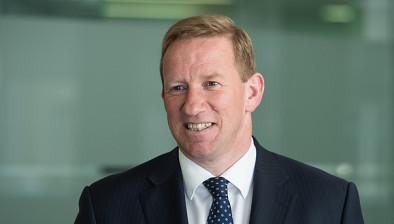Adrian Murphy: Amid tax uncertainty, the case for investing has seldom been stronger
Adrian Murphy
Faced with the recent UK government tax changes and further anticipated changes in the upcoming Budget, long-term, diversified investing is the most reliable method for wealth creation compared to holding cash or property, writes Adrian Murphy.
With the Budget set for the end of November, it seems a week doesn’t go by without there being a new rumour about tax changes being considered by the Chancellor. The constant threat of new limits, restrictions, and reductions makes it difficult to know how to plan your finances for the next 12 months, let alone the next few decades.
In fact, the decisions made last year still cast a shadow. Chief among them the addition of pensions to estates for inheritance tax purposes. It essentially undid decades’ worth of financial planning, as the entire income strategy many had banked on for retirement was undone.
Few would rule out another move of similar magnitude, particularly on what the government considers ‘unearned’ income. And, to that end, property appears to be in the crosshairs, with reports suggesting that the Chancellor is considering applying National Insurance to rental income – potentially adding another 8% tax.
Moves like this, along with a challenging residential market, are what prompted Rathbones to declare that the golden age for property investors is over. A report from the firm found that since 2016 house prices have barely kept up with the cost of living, rising an average of 3.7% per year compared with inflation at 3.5%, calling into question its viability as an investment proposition.
On the subject of inflation, its stubbornness should be a warning to the many people across the country who continue to favour holding their savings in cash. It is another area the Chancellor was said to be looking at earlier this year, proposing reductions to the allowance for cash ISA contributions, and reform of some sort seems inevitable.
ISA subscriptions lay bare the savers’ penchant for cash. In the 2023/24 tax year – the most recent data available – of the 15 million adult ISA accounts, not far off two-thirds are cash. And the gap keeps growing: of the 2.6 million new accounts opened in those 12 months, 2.1 million were cash.
On top of that, only last month research from Moneyfacts revealed that fewer than half of savings accounts offer a rate that beats inflation. In the last decade, the average annual return from cash ISAs has been a paltry 1.21% – and that doesn’t take into consideration inflation, which has eroded the real value of cash in recent years.
By contrast, over the same period the average annual return on stocks and shares ISAs has been 9.64% – far above what has been on offer from both cash and property. Even though that is the case, polling from YouGov over the summer suggests that most people in the UK, 65%, see the stock market as too risky.
Of course, the stock market could fall by a significant percentage in the months ahead – as it did earlier this year when Trump’s tariffs roiled markets. But the recovery was swift, and markets have gone on to set new records on both sides of the Atlantic. Being able to watch prices oscillate on a day-to-day basis can be disconcerting, but if you look over any reasonable period of time, the general trends have been up and to the right.
Whatever changes are made in the Budget, more people in the UK would benefit financially from investing. And, while the tax system may change, a fundamental truth is likely to remain: disciplined investing in a diversified portfolio of assets over the long term is the best route to growing real wealth.

Adrian Murphy is CEO of Murphy Wealth






